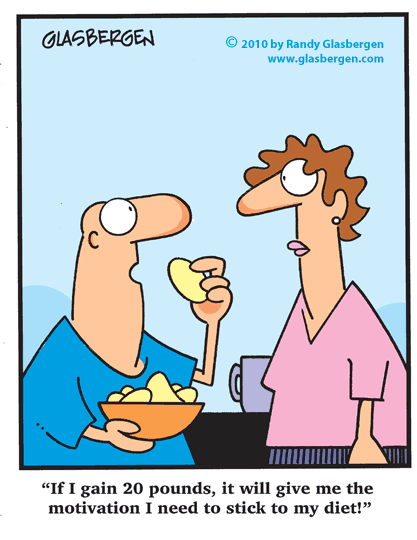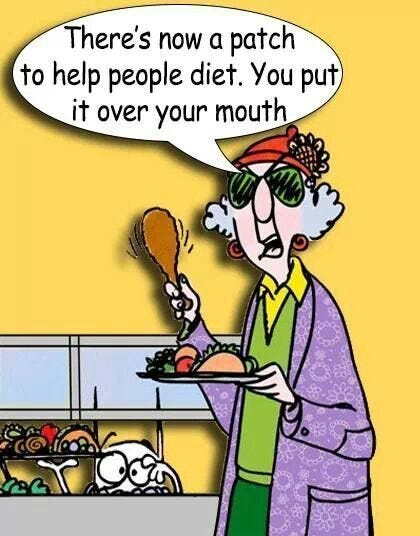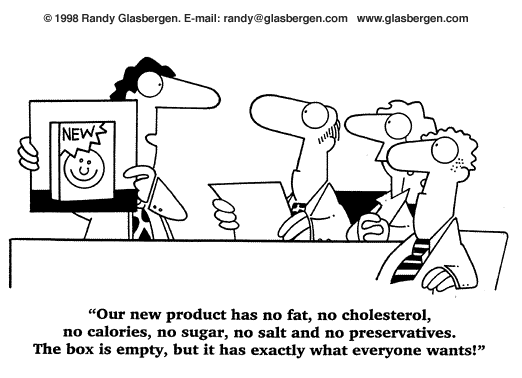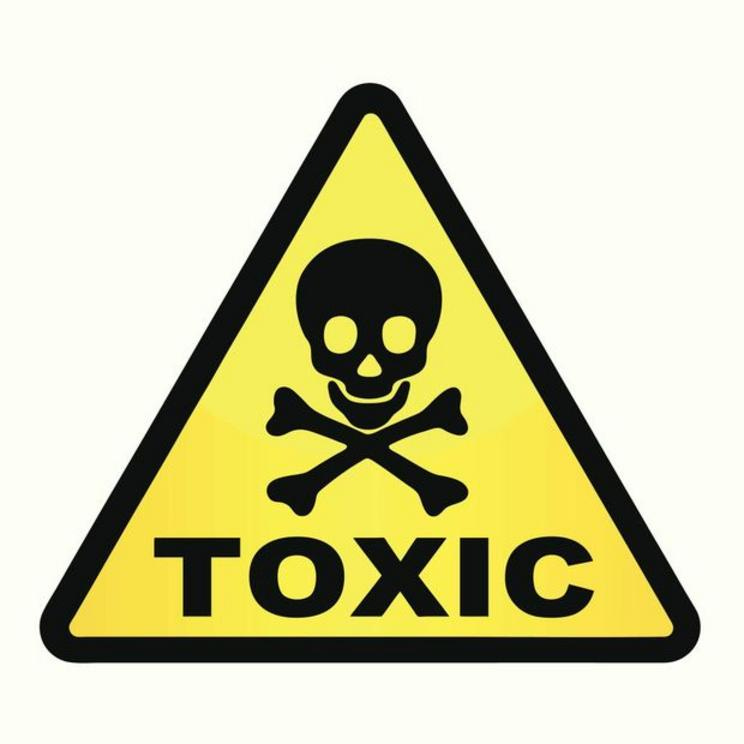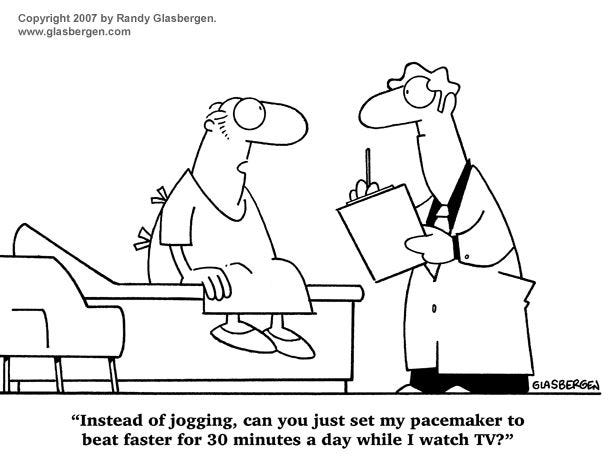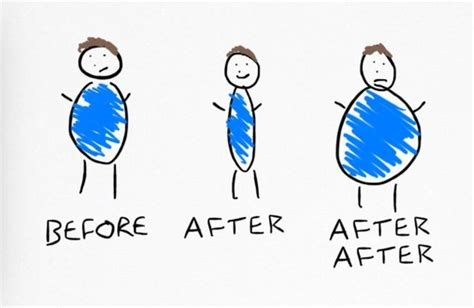360 Degree Weight Loss
Your Goto Guide
Being overweight is harmful to your health, despite the latest push to normalize obesity.
Excessive weight is due to a multitude of interconnected factors.
But to simplify things it is primarily a function of 1. Meaning & Purpose (bear with me), 2. Calories In, Calories Out, 3. Hormones, 4. their disruptors termed Obesogens, and 5. Gut Bacteria - with numerous factors involved under each of these headings.
Losing weight requires balancing the above causes using the tools at hand: your mind, diet, exercise, sleep, stress management, sunlight, social engagement, supplements, and avoidance/detoxification of harmful chemicals.
Some of these may not seem to apply, but they all work to normalize the 4 primary causes of weight gain.
Meaning & Purpose
Some people believe food is primarily a means of enjoyment, others would be happy popping a pill and not eating at all.
These are two extremes and the right way is to find a balance between them.
Food is required for you to function.
If you primarily eat to live, then food is functional.
If you just live to eat, then food becomes dysfunctional.
Overweight and obesity are dysfunctional because they impede what most consider normal, let alone optimal functioning (or what should be considered normal) as well as longevity.
In other words you can either eat to live, or eat to die.
Of course it’s natural to find enjoyment in fulfilling your needs.
What’s unnatural is for the pursuit of pleasure to become an end in itself, especially when it leads to self harm.
When eating is in its natural context it becomes easier to do it normally.
We evolved in communities. Gathering food in a group, preparing it and then eating together helps to nourish us with more than just calories.
We need emotional sustenance as well as physical, and when the emotional sustenance is missing, we look for it in food and tend to overeat in an attempt to fill a hole that food can’t properly fill.
Finally, having a loftier purpose in life than simply maximizing the enjoyment of physical appetites helps to put food in its natural place.
Calories In, Calories Out
Generally speaking eating more calories than you need over a long period of time means you will gain weight.
If you are a couch potato you will just gain fat.
If you are a bodybuilder you will gain muscle, and also usually some fat along with it.
However some people eat very little yet are still overweight or obese, which means their bodies have become more efficient at getting by with fewer calories: their metabolism has slowed down.
Many things can influence our metabolic rate, including our hormones, gut bacteria, and obesogenic chemicals. And many other things influence these three.
Hormones
Thyroid hormone
Thyroid hormone is released by the thyroid gland in the neck, activated by gut bacteria, and is the primary determinant of the speed of metabolism.
Thyroid dysfunction is very common, and can often be subclinical. Autoimmune disease is the most common cause of suboptimal thyroid function - the bodies immune system attacks the thyroid gland.
It is usually possible to correct this with a functional medicine approach, e.g. that outlined at thyroidpharmacist.com.
In those who no longer have a thyroid gland, a functional approach to replacement of thyroid hormone, usually involving both the T4 and T3 forms, oftentimes with natural thyroid glandulars can restore balance to metabolism.
Cortisol
Cortisol is a stress hormone released by chronic over activation of the sympathetic nervous system.
Over activation of the sympathetic nervous system is unavoidable outside of some romanticized idyllic existence.
Our fight or flight response is repeatedly stimulated not just by work and family stress, but also by inflammatory foods, poor sleep, lack of exercise, lack of social engagement, and in some people by chronic infections.
Which is why many ancient cultures developed simple, brief, daily practices to rebalance the autonomic nervous system (made up of sympathetic and parasympathetic arms) - more on this below.
Insulin
Insulin is a pancreatic hormone that helps your cells soak up the sugar glucose from your bloodstream.
It is also an anabolic hormone, meaning that it helps the body to store and build - in this case store fat.
Chronic exposure to refined carbohydrates leads to chronically elevated blood sugar and chronic elevation of insulin levels to help put that sugar into cells.
Because the insulin level and glucose uptake into cells is always higher than the body considers normal, the cells that respond to the insulin signal eventually become resistant to it, in order to lower glucose uptake.
This is the bodies way of maintaining balance and it happens almost any time a drug is given - e.g. if you take a drug to lower blood pressure, the body will eventually become resistant to it and need a higher dose, same for anxiety medication, sleep medication, pain medication, etc.
This should clue you in that refined carbohydrates are more drug than food.
Estrogen
Estrogen is a female sex hormone that has many functions including regulating the menstrual cycle.
Too much estrogen, termed estrogen dominance can lead to weight gain.
This state can be influenced by phyto- and xenoestrogens from the environment, which should be avoided.
These estrogen like compounds are found in plants like soy, receipts (don’t touch with bare skin), plastics and pesticides (eat organic, don’t spray your lawn).
Leptin is a hormone released by fat cells that acts on the brain to control lessen appetite and cause a feeling of fullness.
Levels go up as fat stores increase, but just like insulin it’s possible that when abnormally high levels are present for prolonged periods of time the body becomes resistant to its effects.
Losing weight and keeping it off should over time lead to the reversal of leptin resistance.
Ghrelin
Ghrelin, produced in the gastrointestinal tract, has been termed the “hunger hormone” because it stimulates appetite.
In obese people levels are lower, but sensitivity may be higher.
There are no ways of directly modulating ghrelin levels, but feelings of hunger can usually be lessened dramatically by food choice (low carb) and palatability (how much dry baked potato without salt could you eat, if that’s all you ate?).
Growth Hormone
Growth Hormone (GH) stimulates the breakdown of fat and increases muscle mass.
Exercise is a powerful stimulator of GH as is intermittent fasting and reducing sugar intake.
High levels of melatonin during good quality sleep also stimulate GH.
In order to achieve this it’s important to improve sleep hygiene and especially get sun for 15-30 minutes before 10 am and avoid blue light exposure after dark.
Testosterone
Testosterone is the primary male sex hormone (but also important for women) and an anabolic steroid hormone which stimulates muscle growth.
Low testosterone levels lead to lower energy & motivation, lack of desire, loss of muscle mass and bone strength as well as fat gain.
Unfortunately testosterone levels in the population have been plummeting over the last few decades for poorly understood reasons that are probably multifactorial and can be inferred from what it takes to raise testosterone.
Testosterone production is stimulated by proper diet (cholesterol is required to make testosterone), avoiding alcohol, sleeping well, getting adequate sun/vitamin D, lowering stress/cortisol levels, exercising, competition, avoiding estrogenic compounds found in receipts (don’t touch with bare skin), plastics and pesticides (eat organic, don’t spray your lawn).
Melatonin
Melatonin is the sleep hormone and suboptimal levels contribute to weight gain by triggering insulin resistance, sleep disturbance and circadian rhythm disruption.
Proper sleep hygiene is crucial for optimizing melatonin levels, as is gut health, since the precursor of melatonin is serotonin and over 90% of our serotonin is made by healthy gut bacteria.
Obesogens
These are toxic chemicals in our air, water, food, personal care products, and household items that collect inside our bodies and disrupt our hormonal systems (many have estrogen like effects) leading to obesity.
The following is a list of suspected and confirmed obesogens to avoid:
Food
Refined sugar - whether white sugar, honey, high fructose corn syrup, brown sugar, coconut sugar or any other variety, though some are slightly less harmful than others, they are all intolerable in the relatively huge quantities in which they are consumed, and given their highly addictive nature, may require complete abstention.
Isoflavones like genistein are phytoestrogens primarily found in soy products.
MSG is a flavor enhancer that stimulates appetite.
Industrial Chemicals
BPA and it’s alternatives like BPS found in plastic containers, personal care & beauty products, and shower curtains (released into the air and onto your skin during a hot shower).
PFOA found in nonstick cookware.
Phthalates found in cars interiors, personal care & beauty products, vinyl clothing, floowing, wallpaper and shower curtains.
PBDEs used in many home, automotive and electronic products that need to be flame retardant. Found in contaminated foods, especially high fat foods and fish, and drinking water.
PCBs used in paints, plastics and rubber products.
Pesticides
Glyphosate, chlorphyrifos, diazinon, parathion, etc.
Air Pollution
Benzo(a)pyrene from exhaust fumes, wood burning, coal tar, cigarette smoke and charbroiled food.
Fine Particulate Matter comes from construction sites, unpaved roads, smokestacks and fires.
Heavy metals like lead are in the air, soil, water and inside many homes.
Avoiding Obesogens
Eat all natural, whole foods without refined sugar, preferably organic and avoid soy products.
If organic is not always possible then the “clean 15” is a list of non organic plant products that are particularly low in pesticides.
And the “dirty dozen” is a list of those with the highest amount of pesticides that should be avoided or only eaten if organic, especially any thin skinned fruits and vegetables that soak up pesticides like berries.
Follow the eastern custom of taking off your shoes when you enter your home to avoid tracking toxic dust inside.
Get a good quality indoor air purifier and a good quality water filter.
Avoid using plastic products, especially with heated food or drink.
As a stretch goal you can consider gradually getting rid of home items that are full of chemicals, starting with your mattress, then if possible moving on to other furniture.
In general try to buy products made with organic, natural materials like cotton, hemp, and wool (which is naturally flame retardant).
Detoxing
In order to remove the obesogens that you already have and will likely continue to absorb at some level regardless of how careful you are, it’s important to keep your detox pathways open and functioning optimally.
Our bodies natural detoxify chemicals in our lives and remove them from our body primarily via our urine, stool and sweat - which can even release heavy metals.
In order to keep these systems functioning focus on drinking enough water to urinate a light yellow color, correct any constipation, and sweat daily for 30 minutes, whether while exercising or in a sauna.
Gut Bacteria
We don’t yet fully understand all the intricacies of our relationship with the bacteria that call our gut their home.
But we do know that some alterations in gut bacteria can lead to weight gain (and a whole host of other chronic diseases), and similarly weight gain alters gut bacteria.
One way that gut bacteria affect our weight is by affecting our hormones. Thyroid hormone is activated by gut bacteria. All 3 forms of estrogen are made by gut bacteria. Ninety percent of our serotonin, the precursor of melatonin (the sleep hormone) is produced by gut bacteria.
Antibiotics are actually used in the cattle industry to stimulate weight gain.
Studies in mice have shown that a fecal transplant from an obese mouse can turn a skinny mouse fat, and vice versa.
However even if you have an unhealthy composition of fecal flora - another name for what grows in your gut - it is usually possible to alter it back to a healthy state by changing your lifestyle: what and when you eat, your emotional state, your stress levels, exercise, sleep, sun, etc.
At the same time avoid what throws off gut bacteria: antibiotics, steroids, painkillers, acid reflux medication, etc.
Correctives
Tracking
"That which is measured improves. That which is measured and reported improves exponentially."
-Karl Pearson
One of the easiest weight loss hacks is to simply keep a food journal tracking what and when you eat. The awareness itself tends to change habits over time.
You should also track how you sleep & feel, your waist and hip measurements, and of course your weight.
Diet
Food should deeply nourish while rebalancing gut bacteria, promoting healthy hormone levels and not causing inflammation.
Eat a nutrient dense, lower carb, whole foods diet with healthy fats like olive oil and avoid unhealthy fats like other vegetable oils, and refined carbs/sugars.
Whole foods are minimally processed from their natural forms.
For example ground meat is more processed than steak, which would be considered minimally processed. Likewise pastry flour is more processed than coarse ground whole wheat flour which is more processed than whole wheat berries.
Some of the most nutrient dense foods are organ meats, shellfish, sardines, salmon, berries, eggs, kale, seaweed, and surprisingly enough to most people: potatoes.
Try to get the healthiest versions of foods you can afford, including if possible grass fed, organic meats, low mercury wild Alaskan salmon, and as discussed earlier under avoiding obesogens: organic fruits and vegetables wherever possible.
Because of soil depletion even nutrient dense foods, may be somewhat lacking in nutrients, so consider testing and supplementing where necessary, e.g. Chris Masterjohn has an excellent comprehensive nutritional lab testing program built around whole foods and minimal supplements that I use with patients.
Some nutrients that are especially likely to be low in most people include magnesium, vitamin D, vitamin K2 and Omega 3s.
Depending on preexisting conditions and food intolerances you might also consider a brief therapeutic diet like nose to tail carnivore, keto, autoimmune paleo, etc.
Food Timing
Intermittent fasting helps decrease calories, stimulate growth hormone and lower inflammation.
There are many different methods of fasting including daily fasting windows ranging from 12-23 hours (including 1 to 2 meals), longer once or twice weekly fasts, multi day monthly fasts and even multi week yearly fasts.
Most people drink water during the fast, but some do short periods of dry fasting, which may help liberate metabolic water trapped in fat.
The most common dry fast is the Ramadan fast where muslim worshippers avoid food and water from dawn to dusk for 30 days, in some places and times this equates to a 16 hour or longer fast.
Exercise
In general do what exercise you most enjoy and will keep up regularly, whether a sport, hiking, boating, etc.
Ideally aim for a mix of functional resistance training to build muscle and Zone 2 cardio, which helps build mitochondrial efficiency and teaches the body to burn fat for energy. Incorporate short bursts of more intense exercise like interval training.
Walking is an excellent for of Zone 2 exercise and if necessary you can increase difficulty with a weighted pack.
Sleep Hygiene
Sleep and wake at the same time every day, though this might gradually shift with the seasons as the days lengthen and shorten.
Get direct early morning sun before 10 am for 15-30 minutes.
Avoid blue light after dark.
Stop eating 4 hours before bedtime.
No caffeine after noon, and minimal to no caffeine in general. If anxiety or insomnia stop caffeine until and unless those are resolved.
End reliance on sleep aids.
Stress Management
Develop your own stress management routine utilizing a blend of social engagement, meditation, meditative movement (yoga, tai chi, chi kung), breath work, cold and hot therapies, etc.
Social Engagement is as important for mental and physical health as any other lifestyle factor and is one of the easiest ways of relieving stress and lifting mood.
It includes romance and intimate friendships as well as general engagement with your local community.
Daily Meditation - Try the Headspace app, even if only for 5 minutes a day.
General guidelines for yoga and chi kung:
RELAX - progressively relax all muscles from your head down to your feet then take a deep breath, breathe out and relax twice as much
DON'T WORRY - about anything, including if its working, if your doing it wrong, if you look funny, etc
SMILE - from the heart. Before starting the exercises and prior to starting a new exercise
ENJOY YOURSELF
Chi Kung Exercises:
Lifting the Sky:
12 nerve exercises:
Breathing exercises:
Wim Hof's 10-minute guided breathing exercise:
4 breaths, 4 times a day of 4,7,8 breathing:
Daily 1-2 minutes cold exposure, eg freezing cold shower, or even better an ice bath
Daily 20 minute sauna at 180F or higher (some people with MCAS or histamine related
Sunlight
Regular sun exposure is powerfully anti-inflammatory, raises vitamin D which is important for adequate testosterone, improves mitochondrial efficiency and vascular health, raises neurotransmitters like serotonin which is a precursor to melatonin, and prolongs overall cellular survival.
Even more important than it’s impact on weight is its ability to prolong life:
A recent large prospective study showed that avoiding the sun is a risk factor for all-cause mortality.
The mortality rate amongst the sun shy was approximately two times higher compared with the highest sun exposure group.
Aim for daily 20-30 minutes of sun exposure without intervening glass and without sunscreen between 10 am and noon.
Some may need to work up to this in order to avoid sunburn.
Hacks
Some things will help you to eat less or burn more calories and they are really easy to do.
Don’t drink your calories.
Don’t shop when hungry.
Don’t keep unhealthy food in the house - clear it out. If you have to keep it there hide it out of sight and out of mind.
Eat only at mealtimes and at the same time every day.
Using a small plate and small utensils - you’ll eat less.
Eating slowly, chewing fully, swallowing the entire mouthful before reaching for the next.
Don’t mistake hunger for thirst: try drinking some water.
Eat low caloric density foods first, try a salad!
Have apple cider vinegar on your salad before you eat - it seems this may lower blood sugar rise post meal, limiting insulin levels as well.
Check out the soleus pushup a simple repeated heel lift maneuver that burns calories like nothing else and can be done all day while seated.
Maintenance
A brief diet challenge phase is often exciting and sometimes helpful for getting started, but in order to avoid the typical diet rebound effect you should take it slow and aim for permanent and sustainable changes to your lifestyle.
If you take baby steps and gradually develop new habits you will also rewire your brain along the way.
After 40 days it will be markedly easier to continue a new habit, but it will also be easy to backslide until the 2 year mark, when it will be hardwired in and harder to break than not.



